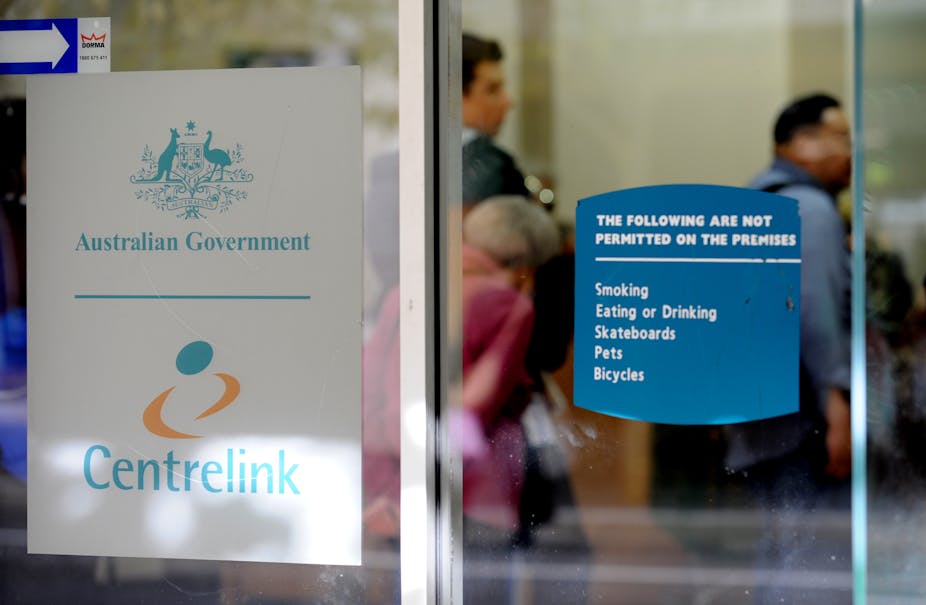Under the cover of last week’s budget splash, the Federal Government has quietly changed tax laws which currently allow students and potentially jobseekers to claim a deduction for expenses against government assistance payments.
The move effectively overturns a High Court decision last year which found in favour of Melbourne student Symone Anstis, who argued she should be able to claim deductions for her study costs such as books, fees and depreciation on her computer because they were incurred in gaining her youth-allowance income.
It’s hard not to see this move by the government as an attack on students - as well as the unemployed.
The High Court decision only benefits students who earn enough income (Youth Allowance plus other income) to be over the effective tax free level without completely denying them the right to some Youth Allowance.
This year that base amount, taking into account the tax free threshold and low income tax offset, is $16,000.
Estimates are that the cost to the revenue of such deductions for students in these circumstances over the four income years between 2006 and 2009 was around $300 million in total.
Unemployed the real target?
But students are not the only or perhaps even the real target of the Government in denying deductions against government assistance payments.
The reasoning in the Anstis case could well have meant that people on Newstart who are required to attend job interviews would be able to claim the interview costs as deductions against the payment.
This decision saves at best a few hundred million dollars.
Negative gearing a tax rort
However the government won’t touch negative gearing, a tax rort that allows investors to gear their investment so they never make a profit but use the loss to offset against their other income.
And if that isn’t enough they can then sell the property at a concessional capital gains tax rate if they have held it for more than 12 months.
Denying students and others deductions are interesting priorities when at the same time there has been a fall in company tax collections.
The profit position of Australian companies has been and is remarkably robust, so much so that the Commissioner of Taxation is now talking about an increasing tax gap – the gap between the level of economic activity and the amount of tax paid. While profits are going up, company tax is going down.
The ATO has said that between 2005 and 2008 40% of big business paid no income tax.
After the global financial crisis the figure is likely to be higher today. Of those big businesses which do pay income tax, most pay much less than the headline rate of 30%.
Exemptions
On top of this decline in company tax collections, the Treasury Tax Expenditures Statement 2010 shows we spend $113 billion through, among other mechanisms, exemptions and extra deductions in the tax system.
Tens of billions of this disguised expenditure is spent on business. For example Treasury estimates the various identified specific business concession cost the revenue over $6 billion a year.
The capital gains tax discount for individuals and trusts, of which business is the major beneficiary, totalled over $4 billion in foregone revenue in 2009/10.
The small business capital gains tax discount cost almost $600 million that year.
Treasury’s Tax Expenditure estimates are that we currently spend $27 billion on superannuation tax concessions.
They project this will rise to almost $38 billion in 2013/14. By contrast we spent just over $29 billion on the age pension in 2009/10 and this figure is estimated to rise to $38.5 billion in 2013/14.
Watered-down
Last year the mining industry’s campaign against a modest tax, the Resource Super Profits Tax, destroyed a Prime Minister and saw his successor introduce a much watered down Minerals Resource Rent Tax.
Estimates are that this will produce a loss of projected revenue of on average $10 billion a year.
A simple tidying up of tax laws to get rid some of the more egregious tax planning opportunities, coupled with removing a few of the tax concessions for business, would yield tens of billions every year. That would help wipe the Budget deficit out.
A simple rent tax applying to all minerals and resources would bring in billions to spend on public health, education, transport and renewable energy.
Extending such a tax to all economic rent – think of the banks and two major supermarkets – would raise even more.
Labor has done none of this, other than watering down its original modest rent tax even further.
Warped priorities
Why is it that Labor’s priorities are to attack legitimate deductions for students and the unemployed but to do nothing about company tax avoidance and Government spending through the tax system on business?
If we are all in this together maybe big business should start paying its way.

